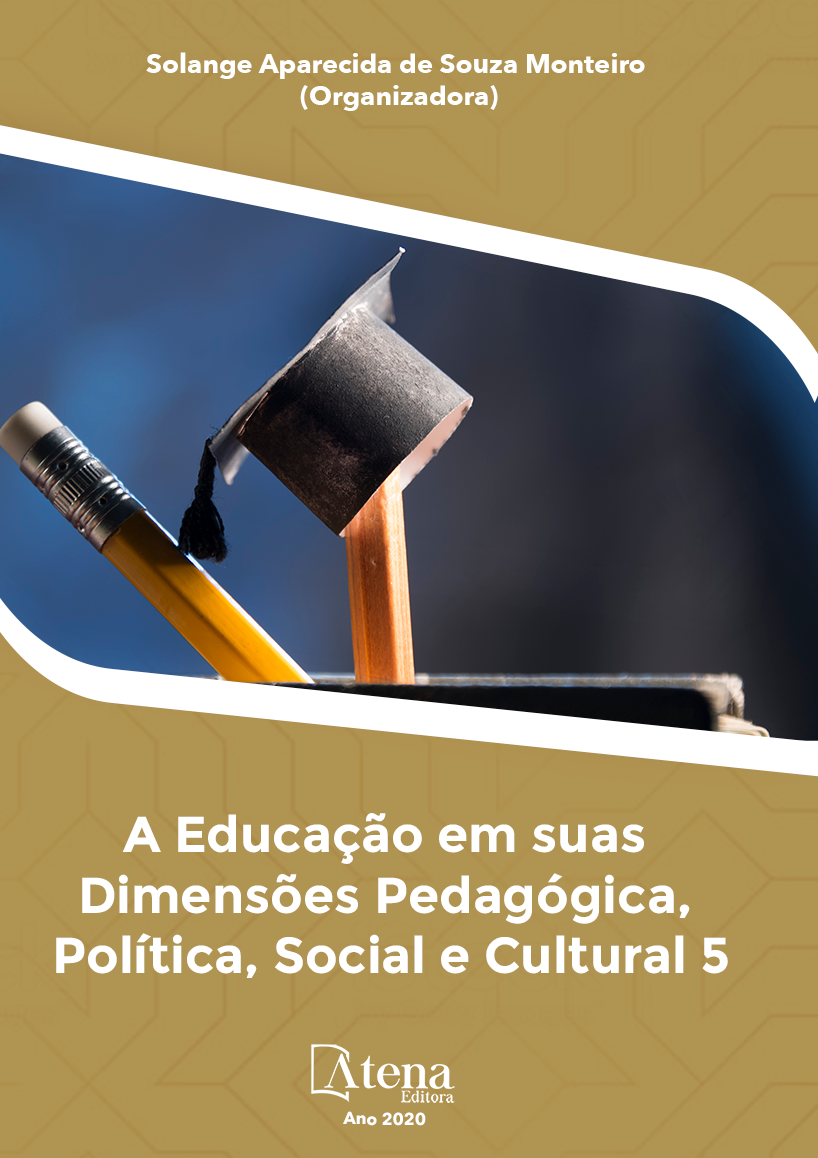
AS IMPLICAÇÕES DAS FORMAÇOES INICIAL E CONTINUADA DO PROFESSOR DE MATEMÁTICA NA EDUCAÇÃO DE JOVENS E ADULTOS : ANÁLISE DAS PRÁTICAS PEDAGÓGICAS DOS PROFESSORES DE UMA ESCOLA PÚBLICA EM FEIRA DE SANTANA -BAHIA
O tema visa discutir o ensino da
matemática na Educação de Jovens e Adultos,
no Eixo VII, de forma a apresentar como
prática pedagógica na sala de aula, o uso da
lousa, apagador e das teorias da matemática,
esses meios são utilizados pelo professor na
formação do conhecimento, e nem sempre
consegue apreender a atenção do aluno
para contribuir com a formação dos conceitos
matemáticos, provocando a dispersão nas
aulas, desinteresse do aluno e dificuldades
de aprendizagem. O professor na formação
inicial aprende conceitos e conteúdos para
ensinar os alunos, mas os métodos de ensino
e aprendizagem devem perpassar o modelo
tradicional. Para atender a demanda do ensino
de matemática, que é estimular o aluno a
pensar de forma lógica, a partir da compreensão
dos conceitos matemáticos e suas estruturas
passa a buscar novos métodos de ensino,
neste caso, a formação continuada torna-se
aliada para o desenvolvimento das aulas, que
passa a ter novos métodos e formas de ensino
e aprendizagem. Neste estudo a metodologia
é a pesquisa bibliográfica em materiais que
discutem o tema e podem ser selecionados
para desenvolver conceito e teorias, com
abordagem qualitativa e objetivo descritivo.
Conclui-se que a aquisição do conhecimento
da matemática, utilizando como ferramentas de
ensino-aprendizagem, lousa, apagador e teoria,
são importantes para a formação do aluno, mas
depende da abordagem e dos conhecimentos
do professor que são adquiridos a partir da
formação continuada e das experiências
adquiridas na sala de aula.
AS IMPLICAÇÕES DAS FORMAÇOES INICIAL E CONTINUADA DO PROFESSOR DE MATEMÁTICA NA EDUCAÇÃO DE JOVENS E ADULTOS : ANÁLISE DAS PRÁTICAS PEDAGÓGICAS DOS PROFESSORES DE UMA ESCOLA PÚBLICA EM FEIRA DE SANTANA -BAHIA
-
DOI: 10.22533/at.ed.3132013026
-
Palavras-chave: EJA, Formação Inicial, Formação Continuada
-
Keywords: EJA, Initial Formation, Continuing Education.
-
Abstract:
The theme aims to discuss the
teaching of mathematics in Youth and Adult
Education, in Axis VII, in order to present as
a pedagogical practice in the classroom, the
use of the blackboard, eraser and theories of
mathematics, these means are used by the
teacher in knowledge, and can not always
capture the student’s attention to contribute
to the formation of mathematical concepts, causing dispersion in class, student
disinterest and learning difficulties. The teacher in initial training learns concepts and
content to teach students, but teaching and learning methods must go beyond the
traditional model. To meet the demand of mathematics teaching, which is to stimulate
the student to think logically, from the understanding of mathematical concepts and
their structures starts to seek new teaching methods, in this case, continuing education
becomes allied to the development of classes, which now has new methods and forms
of teaching and learning. In this study the methodology is the bibliographic research in
materials that discuss the theme and can be selected to develop concept and theories,
with qualitative approach and descriptive objective. It is concluded that the acquisition
of mathematical knowledge, using as teaching-learning tools, blackboard, eraser
and theory, are important for the student’s formation, but it depends on the teacher’s
approach and knowledge that are acquired from the continuing education. and the
experiences gained in the classroom.
-
Número de páginas: 13
- Carleia de Araujo Santos


